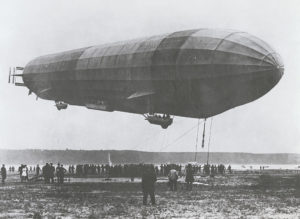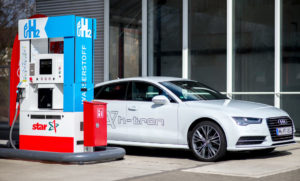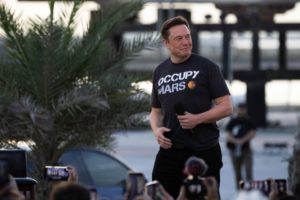Hydrogen – Is It the Fuel of Tomorrow?
The first hydrogen-powered train could be the start of a new trend.
By: Kirsten Brooker | September 28, 2022 | 807 Words

(Photo by Julian Stratenschulte/picture alliance via Getty Images)
Researchers and scientists worldwide are constantly working to find ways to make more efficient products – could the next big trend be hydrogen power? Germany recently launched the world’s first totally hydrogen-fueled train, and other regions around the world are not far behind. Scotland is working on similar technology, and the city of San Bernardino in California hopes to start using a hydrogen train in 2024.
New Hydrogen-Powered Vehicles
In Germany, the world’s first 100% hydrogen-fueled train, the Coradia iLint, has taken its place on the tracks. The line has 14 hydrogen-fueled trains that will eventually replace the 15 traditional trains currently in use. Scotland has also put a hydrogen-fueled train into testing, and is considering using the technology in ferries.

(Photo by Moritz Frankenberg/picture alliance via Getty Images)
Hydrogen cars are already on sale in some areas around the world – but they aren’t very common. As with any new technology, these cars are very expensive. While they can quickly and easily be filled with hydrogen, drivers need to use a filling station to refuel. Only a few locations have filling stations: Japan has 96, Germany has 80, and the US is in third place with 42 stations.
Hydrogen Fuel?
Hydrogen is the lightest element, normally appearing as a gas in its pure form. It is highly combustible, which means it catches fire easily. It is the most common chemical element, thought to make up about three-quarters of the universe – but it rarely appears alone on Earth. Instead, it is usually bonded with other elements. For example, two hydrogen atoms and one oxygen atom join together to create water. Hydrogen gas was first discovered in 1671, and in 1898, pure hydrogen was first made into a liquid by the scientist James Dewar, who used a special cooling method and his invention, the vacuum flask.

(Photo by SSPL/Getty Images)
Since hydrogen is so light, it was used in some of the first air vehicles. It was used to lift airships – or zeppelins – for passenger flights from 1900. Unfortunately, in 1937, the Hindenburg airship caught fire and was destroyed in mid-air above New Jersey. The accident ruined the reputation of hydrogen for flight, and zeppelins in general.
Over the last century, hydrogen has been used in other scientific areas, such as cooling generators, making computer chips, and fuelling rockets. Today, the buzz is about using hydrogen as fuel for vehicles like trains and cars. The technology uses hydrogen fuel cells. By combining hydrogen and oxygen atoms, these fuel cells generate electricity. Smaller cells can power phones and laptops, while larger cells could be used for large buildings.
Benefits and Drawbacks of Hydrogen Power
Some advantages of hydrogen fuel are:
- The only waste made by hydrogen fuel cells is water or steam. This could make it more environmentally friendly than other fuels. Most vehicles today use the internal combustion engine, which emits carbon monoxide and other pollutants.
- Hydrogen vehicles can be quickly and easily filled with fuel, just like a normal gas car. They don’t need to be plugged in to charge for a long time, unlike electric cars.
- The fuel is lightweight and goes long distances without running out. For example, the Coradia iLint recently went 1,175 kilometres (730 miles) without refuelling the hydrogen tank.

(Photo by Hauke-Christian Dittrich/picture alliance via Getty Images)
Or is the hype around hydrogen power unrealistic?
Some disadvantages of hydrogen fuel include:
- It is highly flammable, which can be dangerous.
- It has to be stored under high pressure, which can also be dangerous.
- Pure hydrogen gas is rare and has to be manufactured; this process alone can use a lot of resources and be bad for the environment.
- Drivers would need access to a hydrogen filling station.
- Since the technology is new, is is expensive and complicated to produce.
Not everyone is convinced that hydrogen power is the future. One skeptic is Elon Musk, CEO of Tesla – the biggest electric car company in the world. He said the gas “is the most dumb thing I could possibly imagine for energy storage,” during an interview at the Financial Times’ Future of the Car Summit. Musk suggested that liquid nitrogen takes up too much space. He stated that the storage tanks would have to be gigantic, and if the hydrogen were in gas form, the tanks would have to be even larger.

Elon Musk (Photo by Michael Gonzalez/Getty Images)
This is not Musk’s first argument against hydrogen power for cars. In 2019, he dismissed it as a silly idea because hydrogen is not a common element on Earth, so it would have to be made by splitting water or hydrocarbon molecules.
With hydrogen now making a splash in Europe, does this type of fuel have a future?
















